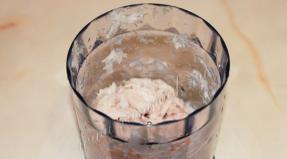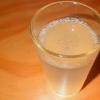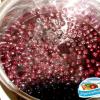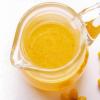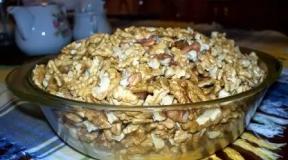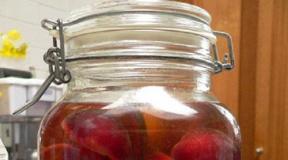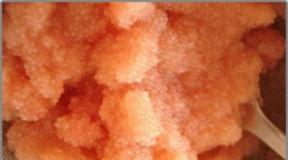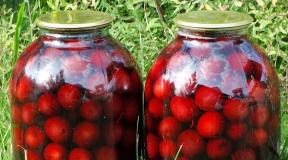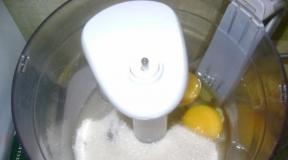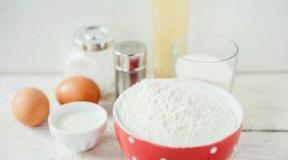Bergamot tea: a beneficial pleasure or harm to the body? Bergamot tea: what it is, benefits and harms, proper brewing.
One of the most famous additives used for blending known varieties of tea. The aroma of the resulting infusion cannot be compared with anything else: barely perceptibly spicy and tart, invigorating. It is not surprising that tea connoisseurs give priority to it.
What is bergamot.
Bergamot is the name of an oily volatile substance derived from Citrus bergamia plants... This, a subtropical tree, from the Rutov family, belonging to the genus Citrus, or rather, a hybrid obtained by crossing a citron plant with an orange. This variety was bred in ancient times, by representatives of Southeast Asia, since they have long used such essential oils to flavor local types of tea. There is another version of the emergence of this culture. Which considers, represented by trees, clones of wild-growing species of orange. It is believed that the seedlings were brought to the Old World by Genoese traders. It is a tree, more than 10 meters high, with branches covered with long thorns. Leaves have a specific smell if you knead them a little. The inflorescences, during the flowering period, spread a wonderful smell. 
Ripe fruits, yellow-green, similar to lemons. The pulp of the fruit is very bitter, therefore it is not used in food. From the inflorescences and leaves of trees, the essential oil is obtained by distillation. A quality product is made from the peel of ripe fruits, according to old technology, using hand presses. The resulting essential oil has a distinctly floral scent with pleasant citrus accents and a green coloration. It is used in products for the care of problem skin, in the creation of perfumery compositions and in the food industry. Quality essential oil is produced on the southern tip of the Apennine Peninsula, in the province of Calabria, in the areas around the city of Bergamo. Currently, plantations of grown trees can be seen on the territories of the Indian subcontinent, South America, China, Spain, France, in the southern regions of Crimea and on the Black Sea coast of the Caucasus. They grow well in areas with subtropical climates. According to a number of signs, experts can easily determine the region of origin of the essential oil. Bergamot, which is used to flavor dry tea, has unique properties and is made only in Italy. Fresh bergamot oil is recognized by its greenish color and surprisingly harmonious sweetish scent. 
With prolonged exposure of the concentrate, a coffee shade appears in the color, and bitter shades appear in the smell. The positive qualities of bergamot essential oil are largely found depending on where the essential oil is made.
Features of the substance of bergamot.
The plant's volatile substance contains a number of original components that have a positive effect on the human body. Even in ancient times, healers in China began to use it to prevent many diseases. In order to avoid the development of allergic reactions, this substance must not be used in undiluted form. For external use, it should be added to the base oil in a ratio (1:10). Beforehand, it is imperative to carry out a test for the sensitivity of the skin to the agent used. Do not add the substance directly to the teapot. This component is used only for flavoring dry tea before packing in packs.
Indications for the use of essential oil.
Bergamot oil is used as an antispasmodic, soothing, anti-inflammatory agent. The positive qualities of bergamot essential oil are truly varied. With its help you can:
- Treat trophic ulcers;
- Stimulate your own immune defenses;
- Quickly bring a person back to normal after severe stressful situations;
- Correct bowel function;
- Activate sensory sensations;
- Restore the proper functioning of the sebaceous glands of the skin.
Many people pay attention that bergamot tea:
- Increases efficiency;
- Helps resist colds;
- Shows the effect of an aphrodisiac.
It should be clarified that the positive properties of bergamot tea are found only if real essential oil was used in its production. The use of synthetic additives does not give the desired properties to tea.
Contraindications for the use of bergamot tea.
Like all substances made from citrus fruits, bergamot has properties that must be taken into account in order to prevent negative results from use. These include:
- The development of allergic manifestations of the body for the presence of individual components of the entire citrus family;
- The presence of diseases of the heart or blood vessels;
- Disturbances in the system of hormonal regulation of the body;
- Increased or decreased activity of the thyroid gland;
- Exacerbation of acquired diseases of the stomach and intestines;
- Manifestations of a lack of pancreatic hormone;
- Childhood.
Many have tried tea with bergamot added. This delicate, spicy, fresh scent is difficult to confuse with something. Some people become his worshipers for a lifetime.
Earl Gray tea is one of the most famous teas. The blend has received worldwide recognition for its refined citrus aroma and rich taste. Bergamot oil in tea has not only invigorating and tonic, but also healing effect. When brewed correctly, the drink can be used to strengthen the immune system, treat colds, and the nervous system. Bergamot tea is rich in beneficial properties, but it also has contraindications that must be taken into account.
Composition and benefits
Bergamot tea is made from various types of black tea. Most often it is Chinese, Indian long-leaf, Ceylon large-leaved and broken. Earl Gray based on white and green teas can also be found today. Bergamot essential oil acts as a flavoring agent. In the classic version, tea has a rich chemical composition, which includes:
- tannins;
- caffeine;
- vitamins B1, B2, PP, P, C;
- pantocrine acid;
- potassium, calcium, phosphorus and magnesium;
- I-linalyl acetate;
- linalool;
- terpineol;
- citral;
- camphene.
Citrus notes pair perfectly with Ceylon black tea
Beneficial features
The main beneficial properties of the drink:
- Bergamot tea is used to treat colds. It has an expectorant, antipyretic and diaphoretic effect. With the beginning of the application, immunity to viruses is significantly increased.
- Hot Earl Gray significantly improves skin turgor, helps to cleanse pores. The face acquires a healthy and uniform color, the cells are saturated with water and useful minerals.
- Tea is perfect for drinking in the evening. The drink adjusts the body for a healthy and sound sleep, calms the nervous system, relieves stress and headaches, improves mood and helps get rid of depression.
- In the morning tea with bergamot has the exact opposite effect - it charges you with vivacity and energy for the whole day.
- Strongly brewed Earl Gray has a positive effect on female libido and potency in men.
- During pregnancy and breastfeeding, tea is recommended to normalize lactation and increase milk production.
- A drink made from large-leaf tea relieves spasms, activates digestive processes.
- Drinking bergamot tea with regular mental stress improves memory and alertness.
Tea has always been considered the best medicine for colds, relieves chills and relieves sore throat.
Contraindications and harm
You can even cause significant harm to your body with such a healthy drink as tea with bergamot. To prevent this from happening, it is better to familiarize yourself in advance with the existing contraindications and subtleties of use.
First of all, you should pay attention to the quality of the tea and the appearance of the tea leaf. The safest and most useful are large-leaved varieties, into which it is difficult to mix third-party substances.
Individual intolerance is another important factor. Bergamot is a citrus fruit, therefore, for those prone to allergies, it may turn out to be an unsafe tea component.
During pregnancy, Earl Gray can provoke an increase in the tone and contraction of the uterus, which is a threat to the fetus.
There's a fine line between the benefits and harms of bergamot
Do not drink tea with bergamot essential oil before the beach, solarium and other sun treatments. The drink affects the production of melanin, so the tan will turn out to be uneven.
For those suffering from disorders of the nervous system, insomnia, experts recommend brewing weak tea or postponing tea drinking in the morning or lunchtime.
Daily allowance for tea with bergamot
The daily allowance for bergamot tea depends on the strength of the brew. For an adult, 2–2.5 cups of a well-infused drink is enough. If you prefer a weak Earl Gray, 3–3.5 cups are allowed. In other cases, the daily amount of tea is calculated individually.
During pregnancy, expectant mothers
Pregnant women who do not have pathologies and ailments are allowed to drink tea with bergamot throughout the entire period of pregnancy. The optimal dose is considered to be no more than 3 cups per day. At the first adverse symptoms, it is better to refuse citrus tea. This is especially true for women in the third trimester of pregnancy who have a threat of miscarriage or vaginal bleeding. Expectant mothers with the following diseases are also at risk:
- bronchial asthma;
- heart disease;
- kidney disease;
- epilepsy;
- hormonal disorders.
When breastfeeding
Although it is not recommended for children under adolescence to drink bergamot tea, it is very beneficial during lactation. You shouldn't abuse it. A weak drink is introduced into the mother's diet only 3-4 months after childbirth. When warm, it helps to increase breast milk, and also soothes, relieves tension and stress.
After the first tea with bergamot, follow the baby's reaction during feeding. If there are signs of allergy, it is better to refuse a natural stimulant. If the reaction is normal, you can drink bergamot tea a few hours before feeding your baby, 2-3 times a week.
For kids
It is best to introduce bergamot tea into the children's diet from the age of 12. The daily allowance is no different from the adult and amounts to 2-3 cups a day. With weak immunity, allergies and bronchitis in a child, the use of bergamot should be minimized.
With diseases
Bergamot is equally good at fighting the flu and colds as well as serious chronic diseases. As part of tea, the remedy perfectly relieves temperature and heat, prevents the development of inflammatory processes. With pancreatitis, it is better to drink bergamot tea without sugar and milk after eating. For diabetics, tea will help relieve metabolic syndrome and normalize glucose levels. It is better to choose the time for tea drinking in the morning.
In diseases of the gastrointestinal tract, bergamot oil relieves spasms, normalizes the system and the amount of secreted gastric juice. The daily intake of liquids is the same as for healthy people - 2-3 cups, depending on the strength of the tea, however, no more than 4 cups.
Bergamot tea is useful for colds and gastrointestinal diseases
Slimming
While on a diet, you should pay special attention to tea with bergamot. A hot drink with a delicate aroma promotes metabolism and improves skin turgor. By regularly drinking several cups of tea a day, you can get rid of extra pounds, while maintaining youthfulness and elasticity of the skin.
To enhance the effect of bergamot tea, it is recommended to use pure citrus oil. The product can be used for bathing, added to cosmetic products (for example, shampoo or cream). Essential oil dissolved in water is suitable for gargling, lotions, compresses, rubbing and inhalations.
Classic brewing recipe
The bergamot tea brewing ceremony begins with the preparation of the dishes. Preheat the china teapot until warm. To do this, you can rinse it with boiling water. Add 1 tsp. a spoonful of black tea leaves. Use Earl Gray, a blend of Ceylon and Indian varieties. Pour 250 ml of hot water over the ingredients. The optimum temperature is no higher than 85 degrees. Infuse the drink for 4-5 minutes.
Bergamot tea is brewed in porcelain dishes
1 tsp will fully help to reveal the taste of tea. spoon of honey.
Milk and lemon, on the other hand, cannot be added categorically. These ingredients are absolutely not compatible with bergamot.
Video: tea with bergamot
Earl Gray's premium taste is considered the gold standard. Its tart notes are unique, as are the beneficial properties for which the drink is known. Prepared according to a classic recipe, it has firmly entered the world tea industry. Everyone has the opportunity to join her and taste the count's tea.
Unlike most scented teas, this drink does not contain synthetic flavors. It is based only on tea leaves and natural essential oil. The combination of these two components gives the drink the following beneficial properties:
- "Earl Gray" with its aroma and bright taste normalizes the work of the nervous system - it improves mood, allows you to concentrate, invigorate in the morning, and in case of increased emotional excitability it soothes;
- improves digestion (bergamot oil softens the astringent properties of black tea), intestinal motility with regular use;
- normalizes blood pressure (with a weak strength of the drink);
- promotes the removal of excess cholesterol from the body;
- tea with bergamot during pregnancy can reduce the manifestations of toxicosis (but you need to use it in moderation);
- It is generally accepted that breastfeeding bergamot tea, properly brewed and consumed in the amount of one or two cups, can increase milk production;
- gives antiseptic properties, removes toxins from the body;
- increases potency in men.
Harm and contraindications

What is bergamot tea, what properties it has, we found out. Now it remains to get acquainted with his recipe and the correct brewing method. Of course, you can buy a ready-made Earl Gray, but it can never be compared to a drink made by yourself. In order to get the most out of it, you can use the following recipe:
- We take any black tea with small leaves (200 g).
- Add 5-6 drops of bergamot essential oil (you can buy it at any pharmacy).
- Close with a lid (it is better to use a tin can as a container). Leave it overnight, stir it in the morning, close it again.
- The raw materials should be mixed daily for 5-7 days. After that, you can prepare a fragrant drink.
With regard to brewing, both classical and Chinese methods can be used. The classic is to use more raw materials and infuse for 10 minutes. It turns out a tart and rich brew, which we dilute with hot water and drink.
Chinese method: pour boiling water, drain in a minute. It is enough to get a rich and healthy tea. This method is good in that a larger amount of nutrients is retained in a freshly brewed drink, not diluted with water.
Read also:
- Bergamot: benefits and harms
- Ivan tea: benefits and harms
- Ginger tea: benefits and harms
- Hibiscus: benefits and harms - reviews of tea lovers
Black or green tea with bergamot is a healthy tonic drink with a pleasant aroma and excellent taste. When using quality tea leaves and essential oil, its benefits are undeniable, and the harm is reduced to zero. However, it is necessary to stick to the norm, which is limited to two to three cups a day.
Bergamot
Benefit

Bergamot is used medicinally. The use of the product in the ability to relax blood vessels, muscles, improve the result of the work of the organs of the gastrointestinal tract. The beneficial properties of bergamot are in the treatment of the nervous system.
Bergamot oil is actively used in medicine and perfumery. It is made from the peel of the fruit, citrus leaves and bergamot flowers. The benefits of bergamot essential oil are undeniable. Fruit oil is the best essential oil obtained from the fruit of citrus trees. The mass is green. It has a fresh and very pleasant aroma.
Useful properties of bergamot oil mass:
The benefits of bergamot lie in the ability to solve problems with oily scalp, excessive sweating, hair loss. The product can be added to shampoos in crushed form or rubbed into the scalp.
The beneficial properties of bergamot are also necessary for nursing mothers. The consumption of the fruit helps to increase the amount of milk and improve lactation.
For a vigorous general condition of the body, you need to add a couple of drops of bergamot essential oil to the gel and take a shower.
The beneficial properties of the fruit have been known for a long time. Before the production of bergamot essential oil, the antiseptic properties of the product were accidentally discovered. Therefore, today the essential oil is used to treat dermatological diseases.
The benefits of fruit oil in the treatment of genitourinary diseases. These can be: urethritis, thrush, cystitis. At the initial stages of the development of these diseases, wash solutions with bergamot oil are used or a few drops of oil mass are added to the bath. Pay particular attention to the concentration of the oil. It should not be more than 1 drop per 18 liters of water.
The benefits of the fruit in the ability to fight overwork. To do this, you need to rub your neck with massage oil with the addition of a couple of drops of bergamot oil.
During the progression of various colds, bergamot is able to relieve the inflammatory process in the nasal sinus. The most effective treatments are inhalation with essential bergamot oil. The result will be a relief of the patient's condition.
The benefit of the fruit lies in the fact that it is used in cooking as an additional ingredient for the production of aromatic marmalade and candied fruits.
When herpes appears, the site of inflammation should be lubricated with bergamot oil.
Harm

The product can cause harm to the human body if misused. Very harsh aromas can cause weakness, shortness of breath, and blood pressure problems.
During the period of strengthening the immune system due to epidemics of colds, you should not use bergamot essential oil in large quantities. The product may be harmful and the person will feel unwell.
The essential oil of the fruit is an allergen. The mass is capable of provoking skin diseases, swelling of the nasopharynx, difficulty breathing. Therefore, you need to be careful when using bergamot oil, because the harm of the product in this case is guaranteed.
Do not use pure bergamot essential oil. The consequence can be serious burns. The product must be added to olive oil or massage oil, then the harm of such a mixture will be excluded. After the massage, wash your hands thoroughly.
Drinking tea with pieces of fruit can be harmful to someone who has trouble sleeping. Therefore, it is best to avoid drinking tea before resting.
Calorie content
Contraindications
Application
Storage
Bergamot fruit must be refrigerated. The nutritional value and beneficial properties of bergamot oil depend on the mode of storage. It includes the following components:
- light;
- temperature conditions;
- storage duration.
Under improper storage conditions of the product, the beneficial properties of bergamot oil are destroyed. In this case, the product is divided into toxic and carcinogenic compounds that can cause an allergic reaction. Such oil is ineffective and hazardous to health.
Store bergamot oil in a tightly closed dark glass bottle at a temperature of 22 degrees. Light and air impair the beneficial properties of the oil.
If the mass is in a transparent glass container, the container must be placed in a box to protect it from light.
It is strictly forbidden to store bergamot essential oil in plastic containers. Bergamot essential oils can react with this material to form toxic compounds.
Store the oil mass away from fire and out of the reach of the child.
The nutritional value
Vitamins and minerals
Should bergamot be added to tea? The benefits and harms of the product
Bergamot tea is one of the rather popular drinks, which not only connoisseurs, but also from time to time everyone who wants to like to pamper themselves with. The strong and very pleasant aroma makes the tea extremely tasty. However, what bergamot is, the benefits and harms of this flavor, the methods of its production and use - very few people know about this.
Areas of application of bergamot
Useful properties of bergamot
Bergamot treatment
Bergamot: benefits and harms
Despite the huge variety of positive effects, bergamot is contraindicated in some cases. In addition to individual intolerance in some people, bergamot is also not recommended for children under 12 years old. The harm in case of use may outweigh the benefits, since no serious research has been carried out on this score.

In some cases, bergamot oil can provoke a miscarriage in a pregnant girl, so it is better to refuse to use it. Although for young mothers, it is very useful, as it enhances lactation.
Special substances contained in bergamot, furocoumarins, can lead to the appearance of age spots with prolonged use or a predisposition to them. Therefore, before applying the cream to the face or problem area, you should test it on a healthy area of the skin.
Bergamot - the benefits and harms of the "princely pear"
The delicate and invigorating taste of tea with bergamot was discovered by many. But has anyone thought about where this additive came from in their favorite drink? Unlikely. Of course, it may seem that the famous English earl gray tea has always had amazing bergamot. However, this is not at all the case.
For the first time, the benefits of this citrus fruit were revealed not to the British, but to their southern European counterparts, the Italians. It was in the Italian town of Bergamo that they paid attention to this citrus rich in essential oils, and the wise Turks later assigned it the princely title - "beg armudy", which means "princely pear".
History is history, but isn't the harm of bergamot hidden behind the mysteries of the past? Can you be 100% sure that the British and Italians were not mistaken about this citrus fruit?
Revealing the truth: a look at the composition
Bergamot in culinary traditions
 No matter how talented Italians from Bergamo are, the enterprising British came up with the idea of eating bergamot. It was they who in the 19th century came up with the idea to add the zest and juice of this citrus fruit to black tea.
No matter how talented Italians from Bergamo are, the enterprising British came up with the idea of eating bergamot. It was they who in the 19th century came up with the idea to add the zest and juice of this citrus fruit to black tea.
Nevertheless, today bergamot has crossed the line of a tea additive, becoming a full-fledged product of culinary excellence. So, on its basis in Greece they learned to make amazing jam, and in Italy inimitable marmalade. In addition, this citrus is actively used in baked goods, giving it a special delicate aroma.
It is clear that the benefits of bergamot for culinary specialists are obvious, but did they disclose the harm of this product? Oddly enough, but yes. Italian chefs have noticed that, regardless of the technology of making bergamot sweets, overeating may result in an allergic reaction. But why, in fact, be surprised? Bergamot is a citrus fruit, and every citrus, as you know, is capable of causing allergies. What's the conclusion? Right! Good should be in moderation!
Bergamot - useful properties and contraindications
Bergamot belongs to citrus plants. This fruit owes its name to the small Italian town of Bergamo. It was there that they began to grow it for the first time. World fame came to bergamot in the 17th century thanks to French perfumers who made "royal water" from it. Later, the world's first colognes were made on the basis of bergamot.
Perhaps these pleasantly smelling fruits would have remained a raw material for perfume, if not for the British. After learning about the health benefits of bergamot, they invented the famous "Earl Gray". Since then, black tea with bergamot has become a favorite drink of many of us.
The beneficial properties of bergamot are mentioned in many old medical reference books. The essential oil of this fruit has been used as an antiseptic to treat wounds, stomatitis, skin inflammations and infections. And with its help, they got rid of bad breath.
The chemical composition and calorie content of bergamot
Useful properties of bergamot
It is very difficult to find bergamot in the form of a fruit in our area, but it is found very often as an essential oil. In addition to the well-known tea and confectionery, it can also be aromatherapy oils.
As already mentioned, ancient healers used it instead of antibiotics to treat many diseases. But even now, colds and viral infections are actively treated with this fruit. It has an expectorant, antipyretic and diaphoretic effect, and also helps to strengthen the immune system.
Regular consumption of bergamot tea improves skin turgor. In addition, this drink tightens pores and reduces the intensity of the sebaceous glands.
Bergamot also helps to solve the problem of excessive sweating, oily scalp, excessive hair loss. In the latter case, it can be added to shampoos or rubbed into the scalp.
The benefits of bergamotai for the nervous system are invaluable. Its aroma relieves anxiety, fatigue, tones up and reduces the severe effects of stress. Breathing in the scent of bergamot can cheer you up and relieve depression.
Moreover, nursing mothers with the help of this aroma will be able to increase the amount of milk and improve lactation.
If you want to invigorate and energize for the whole day, add a few drops of bergamot essential oil to the gel and take a morning shower with it.
Few people know that bergamot has a positive effect on blood vessels and normalizes the autonomic nervous system. But the ability of bergamot to heal cuts and wounds, relieve spasms and treat skin diseases has long been known. Bergamot essential oil can be used during belly massage. This procedure improves bowel function and digestion.
It is also believed that bergamot has a good effect on male potency and female libido.
Bergamot contraindications
The benefits of bergamot (video)
When giving birth in a store and looking at many boxes, people often wonder: is bergamot in tea good or bad for the body? And how to prepare the drink?
Bergamot is a pear-shaped fruit from the citrus family. It is grown in many countries - such as Italy and Algeria, Argentina and Tunisia, Brazil and Turkey. Whole plantations can be found in some Asian regions. Green or yellow fruit oil is often used for medicinal and dietary purposes.
Classic bergamot tea is a combination of black tea and bergamot extract. It is better known to amateurs as Earl Gray. Other leaves, such as green tea, can be added to the infusion. The amount of caffeine in the drink most often depends on this. And in the manufacture of wild bergamot is used - a plant called monarda.
Types of tea with bergamot
The popularity of Earl Gray has contributed to the creation of its varieties. Here are just a few of them:
- Russian Earl Gray - a classic with the addition of pieces of citrus peel;
- Lady Gray - classic tea with cornflower flowers;
- French Earl Gray - with rose petals;
- Earl Gray Green - green tea with bergamot;
- Earl Gray White - similar to the previous one, only the leaves are used for white tea.
Some manufacturers offer their products with beautiful names - for example, Mademoiselle Gray or Lord Gray. But the essence remains the same - various spices, dried flower petals or other ingredients are simply added to classic tea.

Some cafes also offer a drink called "London Fog". This is a classic Earl Gray, but added milk and vanilla extract during preparation.
Useful properties of tea
Benefits of using:
- Calming effect. A 2007 study showed that drinking this drink reduced the incidence of seasonal mental disorders.
- Antioxidant properties. Antioxidants help prevent age-related changes in cells and maintain youthfulness. It has been proven to contain over 40,000 antioxidants in 100 grams of this drink.
- Improving digestion. Drinking tea allows you to get rid of debilitating nausea and frequent indigestion, so American scientists back in 2009 suggested prescribing the extract to patients with complaints of digestive problems. That is why people with such ailments are advised not to go to the pharmacy, but to brew tea with bergamot.
- Antibacterial action. Research in 2007 revealed that the extract of this plant is a potent antimicrobial agent. Herbal medicine lovers now recommend bergamot tea to get rid of urinary tract infections and when a fungus appears, although the mechanism of its action in this direction is not well understood.

Contraindications for tea with bergamot
In moderate doses, Earl Gray is safe and beneficial for many people, but in large amounts, it causes side effects. They are similar to those of black tea. but bergamot extract also works in its own way. Possible problems from him are as follows:
- Effects of caffeine. Earl Gray, like other teas, contains caffeine, a central nervous system stimulant. 5 cups a day will be enough, but if you drink more, excessive amounts of caffeine will begin to affect the body. A person experiences anxiety, his heart rate increases, tremors and insomnia are observed, you can get addicted to caffeine and all the delights of withdrawal.
- Iron deficiency. The drink contains tannins and gallic acid - all of these compounds slow down the absorption of non-heme iron obtained from plant products (beans and lettuce).
According to nutritionists, drinking bergamot tea can cause the level of absorbed iron to decrease by 75%. Please note that the number depends on the brand and strength. To avoid subsequent deficiencies, it is drunk between meals rather than during meals.

Rules for brewing tea with bergamot
Making Earl Gray is easy - you just need a little tea leaves and hot water. The drink is made directly in the teapot.
One teaspoon of tea leaves is enough for a regular cup. Pour boiling water over it and let it brew for 4-5 minutes, then remove unnecessary leaves. You can add not only sugar to this tea, but also a slice of lemon and a few drops of milk. And then your Earl Gray goes well with candy and cakes.
A tea drink can consist of both separate types of tea, not mixed with each other, and with the addition of various herbs and flowers, pieces of fruit, or flavored with essential oils. One such supplement is bergamot. Tea, the beneficial properties and contraindications of which many do not know, is liked by almost everyone.
The birthplace of Bergamot is considered a small town in Italy - Bergamo
But even tea connoisseurs do not always understand what kind of “fruit” it is - bergamot. Many people think that this herb is like oregano, others have the opinion that it is the bark of some tree, someone generally tends to think that this is an artificial flavoring.
What is bergamot
In fact, bergamot is not oregano, pear or anything artificial. This plant is derived from citrus fruits, obtained by crossing lemon and orange. The fruit itself is not edible, it is bitter and sour. But the essential oils obtained from the thick rind are used as flavorings for tea raw materials.
The first bergamot tea that was brought by Earl Gray to Europe was British black tea with pieces of the peel of this fruit. Now this tea is prepared in a slightly different way, mixing different types of tea and adding bergamot essential oil. The taste of the tea drink is somewhat softer and more pleasant.
Bergamot is grown in the same way as other citrus fruits. But compared to lemon or orange, bergamot is unpretentious and can even be grown at home.
Varieties of bergamot tea
Tea lovers will say that only tea that looks like a kiss can be considered good. It should be sweet, hot and strong. And the delicate taste and tonic tropical smell that bergamot gives to the drink makes good tea an excellent tonic drink. The most common tea is greenfield tea with bergamot, which can be purchased both in tea bags and in a leaf version.
Every person in his life has tried bergamot tea. The most popular is a tea drink made from black teas. This delicious drink suits everyone, perfectly relieves fatigue and fills with energy. Another type of tea drink that few people know about is green tea with bergamot. Contained slightly softens the invigorating effect of bergamot essential oils.
This aromatic drink made from any types of tea raw materials can rightfully be called a drink that gives vigor, strength and energy. However, many people ask themselves, favorite tea with bergamot - the benefits and harms of the drink and what is more?
Useful properties of a tea drink
The benefits of drinking tea with bergamot are great. This drink helps to restore strength, return energy. Anyone who has tasted tea with bergamot at least once will forever remember its spicy, tart taste, slightly giving off a citrus note.
 Bergamot tea perfectly invigorates, gives a feeling of euphoria and causes only positive emotions
Bergamot tea perfectly invigorates, gives a feeling of euphoria and causes only positive emotions The beneficial properties of bergamot have been known for a long time. Even in China, they guessed to use drops of bergamot essential oils as a medicinal drug. And in Germany, long before the advent of antibiotics, ointments with the addition of bergamot essential oils perfectly performed this role. By the way, in this case, you can add oil prepared from the flowers and leaves of the plant.
I would like to put a little emphasis on the benefits of bergamot tea and how best to take it.
- Bergamot helps to strengthen the immune system. Therefore, its role in the treatment of colds and viral diseases is invaluable. It is taken for its excellent antibacterial effect.
- Since a tea drink with bergamot has a pronounced cooling effect, taking such tea at a high temperature helps to reduce it.
- The unique aroma of bergamot is the strongest aphrodisiac that helps restore lost sexual functions.
- The taste and aroma of tea with bergamot perfectly soothes, relaxes and allows you to get rid of stressful conditions and increased internal tension.
- Increases alertness, energizes and tones.
- Bergamot tea has proven itself as an excellent remedy for improving skin condition and reducing age spots.
- Regular consumption of tea drink with essential oils lowers blood sugar levels and normalizes cholesterol levels.
Thus, the tea drink has excellent beneficial properties, helping to get rid of cramps, anxiety, stress. Antiviral properties are indispensable in the fight against the initial symptoms of the common cold. In addition, the addition of bergamot to tea enhances appetite and improves metabolism. In any case, when shopping for bergamot-infused tea, it is important to check for essential oils, not chemical flavoring. If the tea is only flavored, then we cannot talk about any useful or harmful properties of the drink.
 Bergamot essential oils are great for treating colds
Bergamot essential oils are great for treating colds Contraindications to the use of bergamot
Since bergamot is primarily a plant, when using it, you must adhere to the same rules as when using medicinal raw materials. It should be borne in mind that some people are strictly prohibited from using bergamot, even if there is no pronounced allergic reaction.
- The use of bergamot will only harm women with even the slightest problems from gynecology. Due to its high tonic properties, the tea drink can cause a sharp contraction of the uterus, bleeding. Therefore, pregnant women are prohibited from such a drink in any form.
- Bergamot has a very powerful allergenic property and can cause severe allergic shock in sensitive individuals.
- Bergamot tea should not be taken in combination with alcoholic beverages. Such a shock mixture is very harmful to the kidneys, excessive swelling, lower back pain and other symptoms characteristic of kidney disease appear.
- There is an age limit for the use of this drink. Children under 10 years old should not take it in any form. The best option for adults to take is no more than three cups of tea a day.
You should remember about all the contraindications and at the first symptoms of an overdose - nausea, dizziness and discomfort, you must stop drinking tea with bergamot. Bergamot tea can be consumed once a week to prevent these symptoms. So the pleasure will be long, and unpleasant consequences can be avoided.


